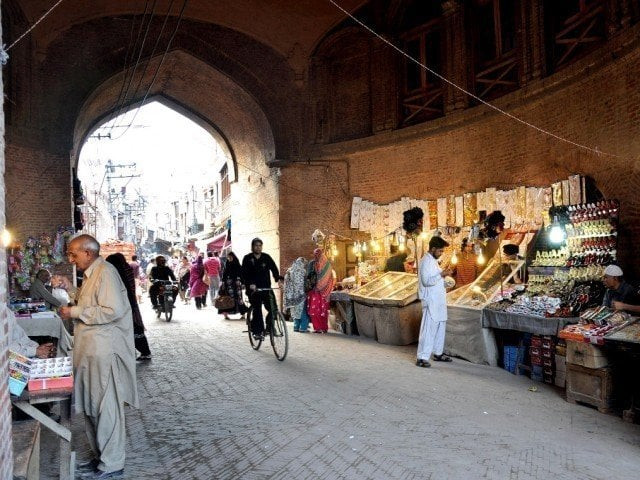Renaming of areas perplexes locals
Historians believe altering names of famous avenues is equivalent to distorting history

Lahore, the cultural hub of the country, is known for its rich heritage which a sublime mixture of Vedic traditions, Mughal aesthetics and colonial values, all of which are reflected in the architecture and identification of famous structures and roads in the city. Therefore, when the local authorities start renaming many of the old avenues in the provincial capital, in a futile attempt to rid them of Hindu influences, it is no surprise that both the cultural past and local citizenry find themselves lost in their own land.
One such clueless local was a rickshaw driver spotted outside the Lahore Railway Station, who was relentlessly trying hard to find a passenger for a ride to Dharampura without realizing that the name of the old area had been changed many years ago to Mustafabad. The poor rickshaw driver cannot be blamed for his oblivion since till date the majority of locals in Lahore still refer to Dharampura and other renamed areas in Lahore, such as the Mall Road, Sanat Nagar, Sham Nagar, Krishan Nagar, and Ram Ghar, by their old names.
Interestingly, although several avenues in the city have been named after British officials, including Chamberlain Road, Nicholson Road, Beadon Road, Brandreth Road, Cooper Road, Lake Road, Hall Road, Davis Road, Macleod Road, Egerton Road, Lawrence Road, and Linton Road, the names of primarily those roads and streets have been changed which had some association with a Hindu sacred figure.
“Under this reasoning, the name of Lahore should also be changed since the city was named after Loh, son of the Hindu deity Ram. Changing the old names of areas in the city due to their association with a particular religion is equivalent to distorting history and should not be encouraged,” objected Fakir Saifuddin, a historian.
Differing with Saifuddin, Malik Maqsood Ahmad, former Director of Punjab Archaeology opined that changing the name of a place or area could not alter its historical status. “In the past, the names of famous landmarks were attributed to their founders or builders. Not only in Pakistan but also around the world, the names of cities, areas, and streets are changed and both political and religious factors are involved in this process,” maintained Ahmad.
According to sources from The Express Tribune, a place, street, or alley cannot be named after a member of the Union Council, District, Provincial, or Federal Assembly, or any person holding a public office. However, personalities who have participated in the freedom movement, have a spotless record of serving the nation, have sacrificed their lives for the country's defence, are a living or deceased head of an alliance state, are a well-known Muslim historical figure, or have rendered outstanding services in the social sector, can be graced by identifying an area, street, or town with their name.
Speaking to The Express Tribune on the matter, a spokesperson for the Punjab Local Government said, “Under the Punjab Local Councils (Road and Street) Rules 1981 and the Punjab Local Government Ordinance 2022, only the provincial cabinet has the authority to name or rename any area, street, or alley. The provincial cabinet approves the proposals sent by the local government. As per the rules, a proposal to name or rename an area, street, or alley is sent to the local council, which then publishes an advertisement in the newspapers seeking objections and suggestions from citizens, and then sends the final proposal to the provincial cabinet.”



















COMMENTS
Comments are moderated and generally will be posted if they are on-topic and not abusive.
For more information, please see our Comments FAQ